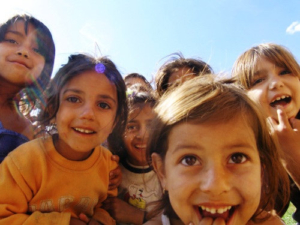Diseases impacting Kosovo put strain on country’s medical care
 Kosovo, the second youngest country in the world, is one of many nations struggling with an increase in non-communicable diseases. Treating and preventing the diseases impacting Kosovo is more difficult than in other European nations because of Kosovo’s status as the second poorest European country, alongside having a significant percentage of its population (40%) that is under 25 years old.
Kosovo, the second youngest country in the world, is one of many nations struggling with an increase in non-communicable diseases. Treating and preventing the diseases impacting Kosovo is more difficult than in other European nations because of Kosovo’s status as the second poorest European country, alongside having a significant percentage of its population (40%) that is under 25 years old.
Causes of Disease
In 2017, 21.6% of adults in Kosovo reported having a chronic non-communicable disease, with cardiovascular disease being the most common cause of mortality and morbidity. Respiratory and malignant diseases, along with diabetes, are also common.
There are a number of causes that can be attributed to the rise in non-communicable diseases. A 2022 Frontiers article found that there are high levels of smoking, physical inactivity and obesity in Kosovo. Additionally, poor nutrition is a widespread issue in the nation, with 85% of adults not getting the recommended amount of fruits and vegetables in their diets.
According to a 2021 UNICEF report, 23% of people living in Kosovo are in poverty. Individuals who are living below the poverty line are more likely to suffer from chronic diseases. For example, adults living in poverty who suffer from type 2 diabetes are twice as likely to face diabetes-related mortality compared to those who earn the highest income, according to Diabetes Care.
Treatment Challenges
The level of concern for the overall health of the Kosovo population is low because of the predominantly young population, according to a 2023 article in the International Journal of Environmental Research and Public Health. However, because of noticeable changes in lifestyle trends and environmental factors, the nation could face difficulties in both detecting and treating non-communicable diseases in the future.
Because Kosovo became a country just 15 years ago, the nation’s health care system is still underdeveloped and inadequately funded. As a result, it is challenging to provide enough medical supplies and treatment for the population. Supply chain faults have caused shortages in medical supplies and a low supply of well-trained medical staff — Kosovo only has 1.44 physicians per 1,000 residents (compared to 3.4 per 1,000 residents across the European Union as a whole) — has presented challenges in the ability to provide treatment against diseases impacting Kosovo, according to the same article.
Treatment Improvements
Initiatives like Project HOPE have worked alongside Kosovo’s Ministry of Health to help combat these challenges. According to its website, Project HOPE has donated much-needed items, such as consumer disposable products, medical equipment and pharmaceutical drugs, to clinics and hospitals in the country.
Additionally, Project HOPE trains medical staff to better treat and detect non-communicable diseases. The organization has donated more than $60 million since 2010 to improve the medical industry in Kosovo.
The Kosovo government has also initiated plans to improve the health of low-income families. In 2019, it drafted Kosovo’s Social Assistance Program (SAS) which aims to reduce poverty and eliminate the cost of health insurance premiums and services for families relying on SAS.
Looking Ahead
The increasing emergence of non-communicable diseases impacting Kosovo is putting a strain on the newly founded nation. Despite the challenges, the country is making progress with the help of donations and programs like Project HOPE to equip the health care system with the required tools and skills to maintain a healthy population.
– Tristan Weisenbach
Photo: Flickr
